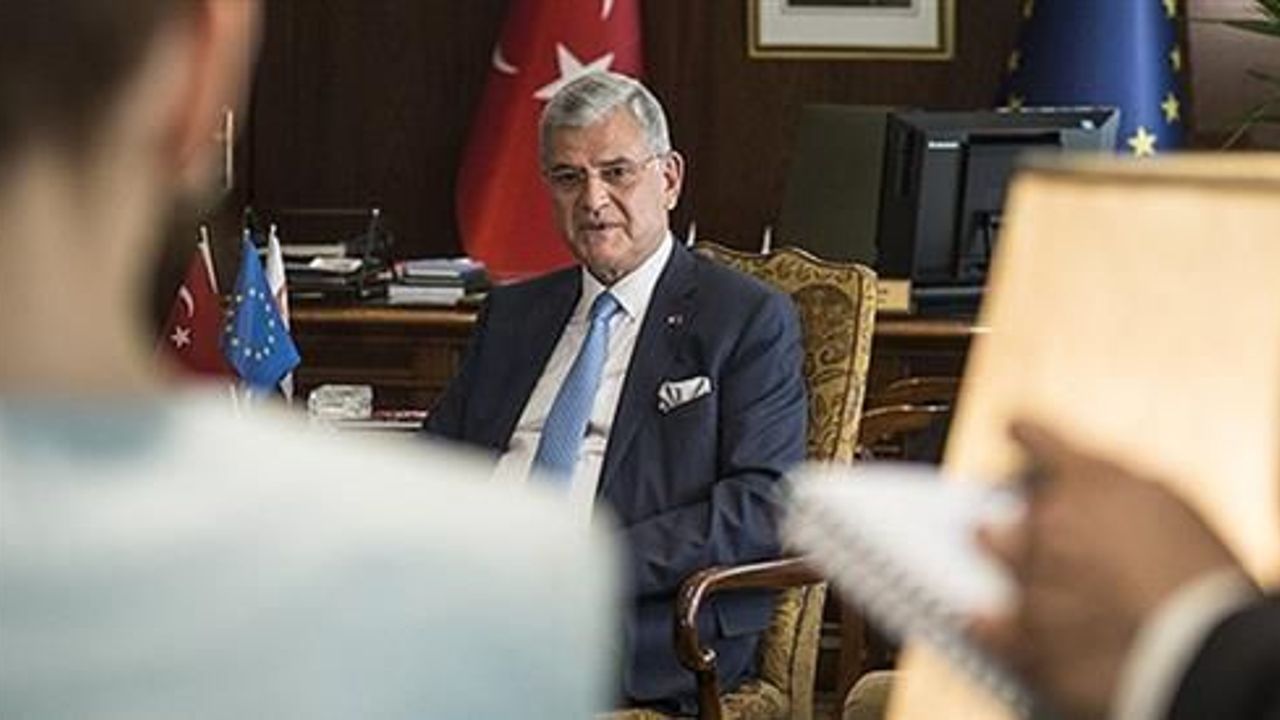EU Parliament labelled 'a circus' amid 1915 controversy
Politics |
Turkish Minister Bozkir says Turkish ambassador will return resolution letter on 1915 incidents 'without even opening it'.

Font Size:
Turkey's EU Minister Volkan Bozkir has called the European Parliament "a circus" following its controversial decision to label the deaths of Armenians in 1915 a "genocide", which Turkey rejects.
The minister's remarks came during a televised interview in Ankara on Thursday, a day after the European Parliament voted on the centenary of the 1915 events to reconfirm a 1987 resolution in which it first recognized them as "genocide".
Calling the outcome of the vote "a slander", Bozkir said the move proved the European Parliament was "a circus where anyone from a hundred countries and who has no party discipline at all, can table a motion".
He said a letter from the parliament detailing the resolution, would be handed to Selim Yener, the Turkish Ambassador to the EU, and "he will return the letter to them without even opening it".
"History was politicized with this decision," Bozkir said.
- 'Acting smart'
He added he does not believe U.S. President Barack Obama will adopt the same position when he delivers his annual speech on April, 24, the centennial anniversary of the 1915 incidents.
"The U.S. have always acted smart. I don't believe the President of the United States will fall into that trap," he said.
The 1915 events took place during World War I when a portion of the Armenian population living in the Ottoman Empire sided with the invading Russians and revolted against the empire.
The Ottoman Empire relocated Armenians in eastern Anatolia following the revolts and there were Armenian casualties during the relocation process.
Armenia has demanded an apology and compensation, while Turkey has officially refuted Armenian allegations over the incidents saying that, although Armenians died during the relocations, many Turks also lost their lives in attacks carried out by Armenian gangs in Anatolia.
The Turkish government has repeatedly called on historians to study Ottoman archives pertaining to the era to uncover what actually happened.
- Differing opinions
The debate on "genocide" and the differing opinions between the present-day Turkish government and the Armenian diaspora, along with the current administration in Yerevan, still generates political tension between Turks and Armenians.
Turkey's official position against allegations of "genocide" is that it acknowledges the past experiences were a great tragedy and that both parties suffered heavy casualties, including hundreds of Muslim Turks.
Ankara agrees that there were Armenian casualties during World War I, but says that it is impossible to define these incidents as "genocide".
In 2014, then Turkish Prime Minister Recep Tayyip Erdogan expressed his condolences for the first time to all Ottoman citizens who lost their lives in the events of 1915.
"May Armenians who lost their lives in the events in the early 20th century rest in peace, and we convey our condolences to their grandchildren," Erdogan said.
Anadolu Agency
The minister's remarks came during a televised interview in Ankara on Thursday, a day after the European Parliament voted on the centenary of the 1915 events to reconfirm a 1987 resolution in which it first recognized them as "genocide".
Calling the outcome of the vote "a slander", Bozkir said the move proved the European Parliament was "a circus where anyone from a hundred countries and who has no party discipline at all, can table a motion".
He said a letter from the parliament detailing the resolution, would be handed to Selim Yener, the Turkish Ambassador to the EU, and "he will return the letter to them without even opening it".
"History was politicized with this decision," Bozkir said.
- 'Acting smart'
He added he does not believe U.S. President Barack Obama will adopt the same position when he delivers his annual speech on April, 24, the centennial anniversary of the 1915 incidents.
"The U.S. have always acted smart. I don't believe the President of the United States will fall into that trap," he said.
The 1915 events took place during World War I when a portion of the Armenian population living in the Ottoman Empire sided with the invading Russians and revolted against the empire.
The Ottoman Empire relocated Armenians in eastern Anatolia following the revolts and there were Armenian casualties during the relocation process.
Armenia has demanded an apology and compensation, while Turkey has officially refuted Armenian allegations over the incidents saying that, although Armenians died during the relocations, many Turks also lost their lives in attacks carried out by Armenian gangs in Anatolia.
The Turkish government has repeatedly called on historians to study Ottoman archives pertaining to the era to uncover what actually happened.
- Differing opinions
The debate on "genocide" and the differing opinions between the present-day Turkish government and the Armenian diaspora, along with the current administration in Yerevan, still generates political tension between Turks and Armenians.
Turkey's official position against allegations of "genocide" is that it acknowledges the past experiences were a great tragedy and that both parties suffered heavy casualties, including hundreds of Muslim Turks.
Ankara agrees that there were Armenian casualties during World War I, but says that it is impossible to define these incidents as "genocide".
In 2014, then Turkish Prime Minister Recep Tayyip Erdogan expressed his condolences for the first time to all Ottoman citizens who lost their lives in the events of 1915.
"May Armenians who lost their lives in the events in the early 20th century rest in peace, and we convey our condolences to their grandchildren," Erdogan said.
Anadolu Agency
Similar News
Video News

WORLD
26 Mart 2024 - 11:18
Photo News






